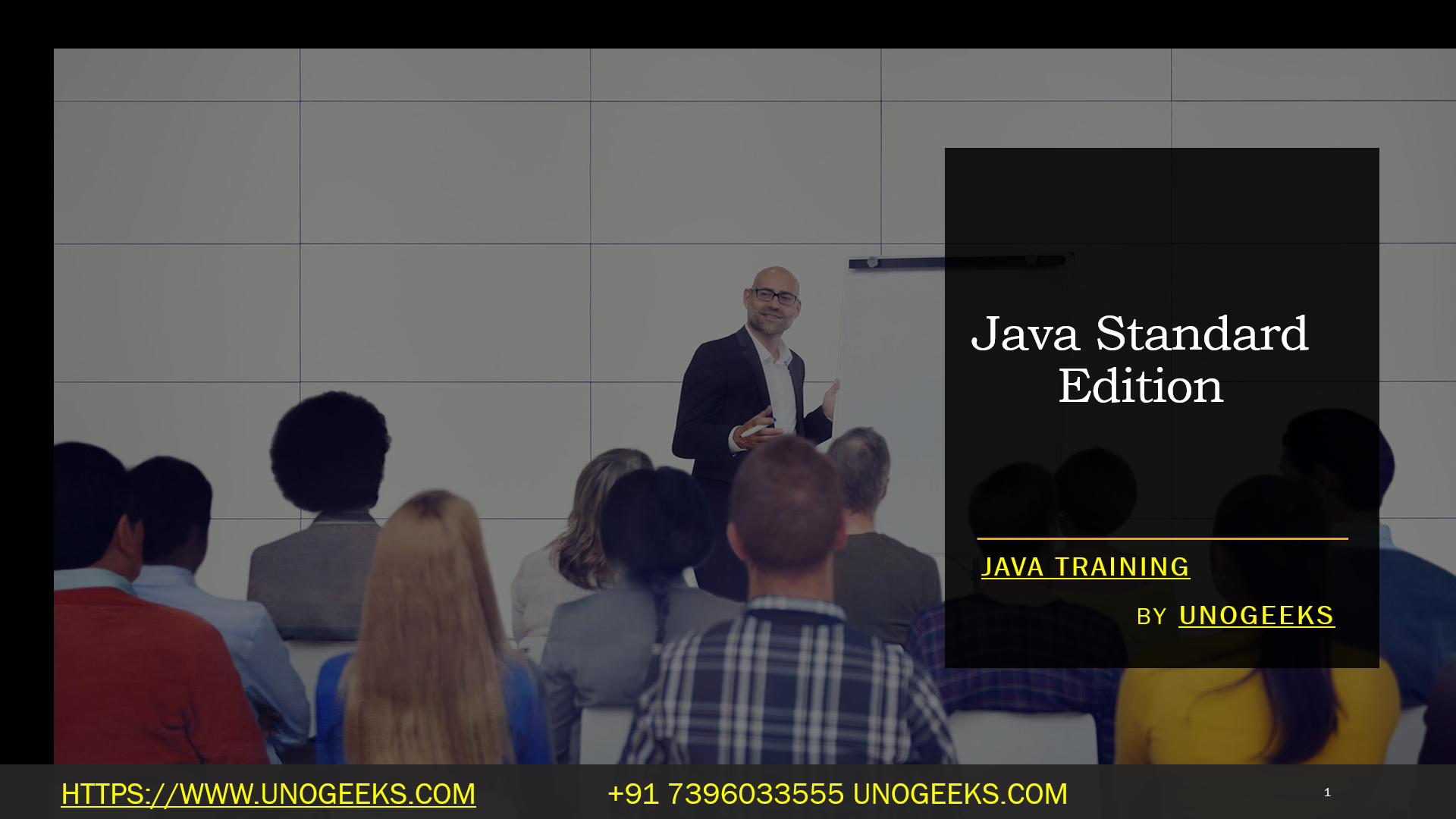Java Standard Edition
Java Standard Edition (Java SE), formerly known as Java 2 Platform, Standard Edition (J2SE), is a platform developed by Oracle Corporation (formerly Sun Microsystems) that provides the core functionality of the Java programming language. It forms the foundation upon which all other Java platforms and editions are built. Java SE is primarily used for developing desktop, server, and general-purpose applications. Here are key aspects of Java SE:
Core Java Libraries: Java SE includes a comprehensive set of standard libraries and APIs (Application Programming Interfaces) that provide essential functionality for various programming tasks. These libraries cover areas such as data structures, input/output (I/O), networking, threading, and more.
Java Language: Java SE is centered around the Java programming language itself. It provides the Java Compiler (
javac) and the Java Virtual Machine (JVM) to compile and run Java applications. Java SE supports the latest language features and enhancements introduced in each new version.Platform Independence: One of the core principles of Java SE is platform independence. Java code written using Java SE can run on any platform that has a compatible JVM, allowing developers to write “write once, run anywhere” applications.
Standard APIs: Java SE includes standard APIs for GUI development (e.g., AWT and Swing), file handling, date and time manipulation (e.g.,
java.timepackage), and other common programming tasks.Security: Java SE incorporates security features to help developers write secure applications. This includes features like the Security Manager, code signing, and various security libraries.
Development Tools: Java SE provides development tools such as the Java Development Kit (JDK), which includes the Java Compiler, the Java Debugger (
jdb), and other utilities for code development and debugging.Multi-Threading: Java SE supports multi-threading, allowing developers to create multi-threaded applications that can take advantage of modern multi-core processors.
Community and Ecosystem: Java SE benefits from a large and active community of developers, which contributes to open-source projects, libraries, and frameworks, and provides support and resources for Java SE developers.
Versioning: Java SE is versioned, with each version introducing new features, performance enhancements, and bug fixes. Developers can choose the Java SE version that best suits their needs.
Updates and Support: Oracle provides updates and support for Java SE. Users can choose between long-term support (LTS) releases and other versions based on their requirements.
Demo Day 1 Video:
Conclusion:
Unogeeks is the No.1 Training Institute for Java Training. Anyone Disagree? Please drop in a comment
You can check out our other latest blogs on Java Training here – Java Blogs
You can check out our Best in Class Java Training details here – Java Training

———————————-
For Training inquiries:
Call/Whatsapp: +91 73960 33555
Mail us at: info@unogeeks.com
Our Website ➜ https://unogeeks.com
Follow us:
Instagram: https://www.instagram.com/unogeeks
Facebook: https://www.facebook.com/UnogeeksSoftwareTrainingInstitute
Twitter: https://twitter.com/unogeeks
